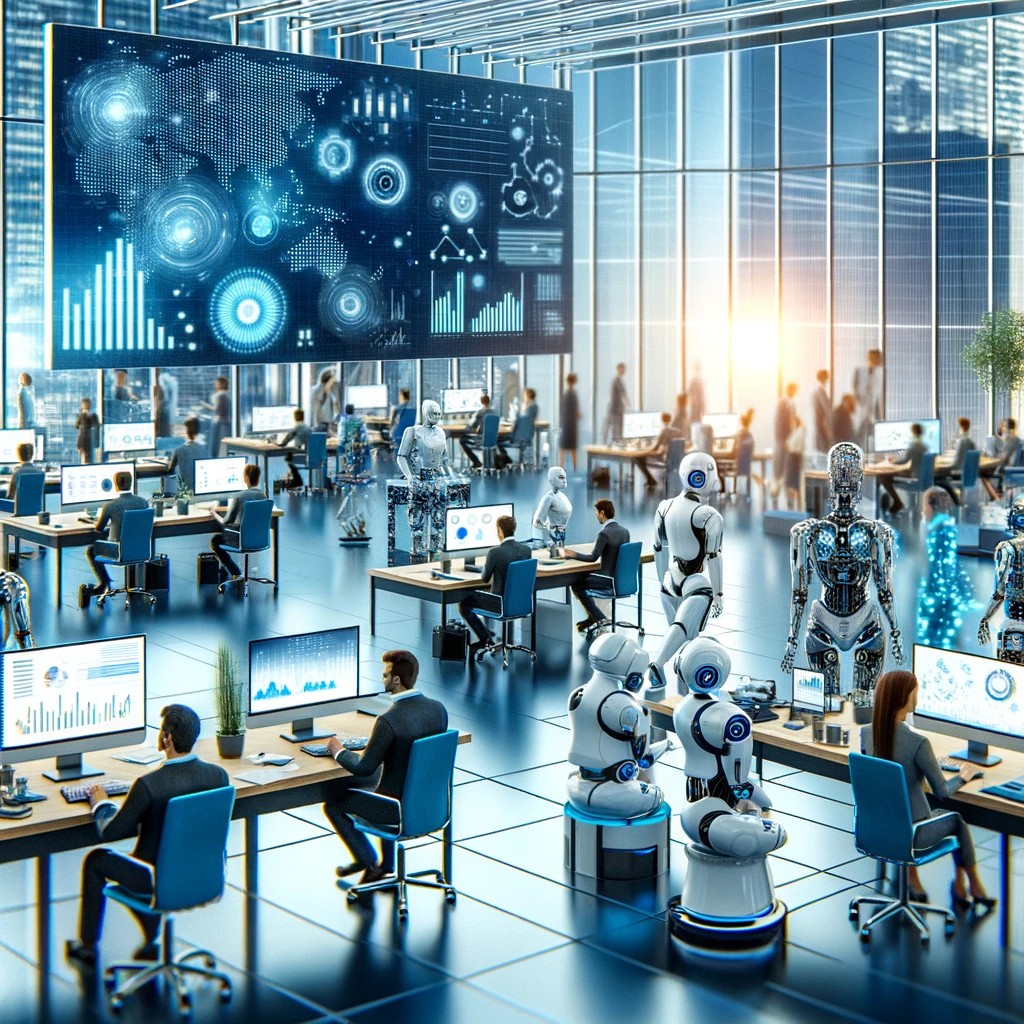Artificial intelligence (AI) is making waves across various industries. While the promise of enhanced productivity and automation is undeniable, it also raises concerns about the future of jobs.
Opportunities for job creation
With its ability to automate tasks and analyze data at unprecedented speeds, artificial intelligence is poised to create new job opportunities in unexpected areas. One example is the collaboration between Adecco, the world’s largest temporary staffing agency, and Microsoft. Their partnership aims to establish a career platform that advises companies and workers on potential career paths and skills development.
This platform has the potential to open doors for individuals who may not have considered certain career paths, thereby expanding their horizons. AI-driven tools can help individuals identify transferable skills, leading to new job prospects they might not have imagined.
Upskilling and reskilling
One of the positive aspects of AI is its capacity to facilitate upskilling and reskilling. As AI systems become more prevalent in the workplace, individuals can harness these tools for self-improvement. For instance, Adecco has developed an AI-powered curriculum vitae (CV) maker, which assists users in generating their CVs. This not only streamlines the job application process but also enhances the digital skills of job seekers.
Moreover, AI allows for the automation of mundane and time-consuming tasks, freeing up recruiters’ valuable time. Chatbots, like the one mentioned in the article, can interact with thousands of candidates quickly, enabling recruiters to focus on building meaningful relationships rather than sifting through databases.
Job market and uncertainty
While AI presents numerous opportunities, it is crucial to acknowledge the disruptions it may cause. The article’s subject, Denis Machuel, the CEO of Adecco, highlights that AI’s impact on the job market is one of the most significant disruptions in recent memory. However, predicting the precise outcome over the next five years remains challenging.
AI’s role in automating information gathering and synthesis means that jobs in finance, legal, and business that primarily involve these tasks could be at risk. White-collar workers may find themselves more susceptible to immediate disruption than their blue-collar counterparts. However, the extent of this disruption will depend on the specific tasks associated with each job.
Complex and human-centric skills
Despite the potential for automation in information-heavy professions, certain aspects of work remain deeply rooted in human capabilities. For instance, while AI can compute vast numbers of legal decisions, it cannot replace the profound understanding and problem-solving skills required to navigate complex legal situations.
Moreover, tasks that involve relationship-building, strategic thinking, and creative problem-solving are less likely to be automated successfully. These skills are quintessentially human and are vital in various professions, including law, marketing, and management.
As AI advances, it will undoubtedly bring opportunities and challenges to the job market. The key lies in striking a balance between leveraging AI for enhanced productivity and recognizing the irreplaceable value of human skills. AI can optimize tasks, analyze data, and generate content but cannot replicate the depth of human understanding, empathy, and creativity.
From Zero to Web3 Pro: Your 90-Day Career Launch Plan
